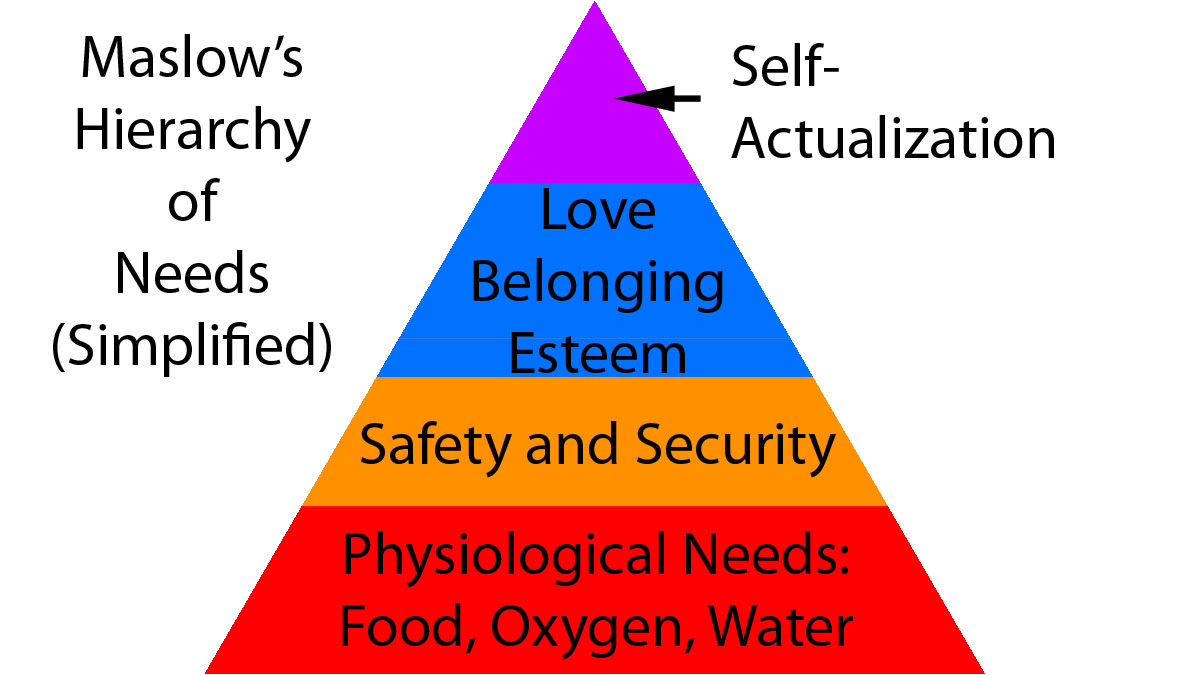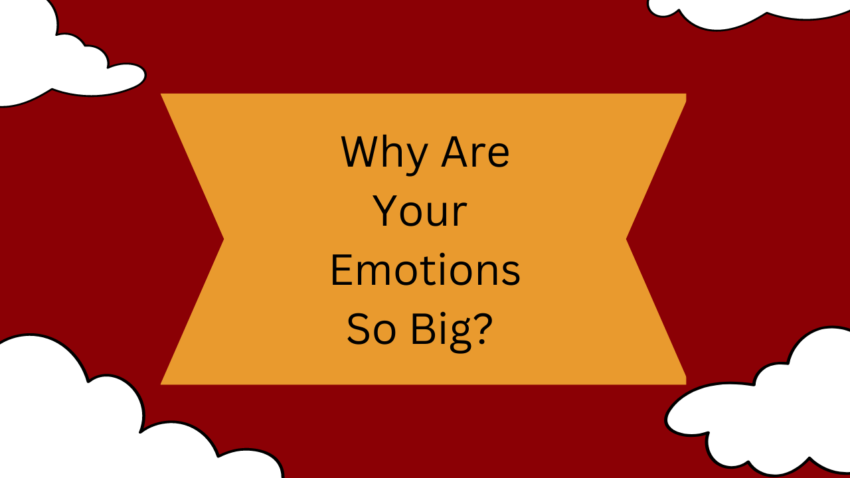Now that we’ve covered each of the major emotions of Happiness, Sadness, Anger, Fear, and Disgust, we can start looking at the factors which influence our emotions, and start learning how to change the influences and our emotions. Any factor in our lives which makes us more or less likely to experience an emotion is called an Emotional Magnifier. These factors can affect our mood, even if we don’t recognize them, so learning what our Magnifiers are and learning to manage them is a vital aspect of improving our relationship with our emotions.
Note: In programs such as Dialectical Behavioral Therapy, Magnifiers are called vulnerability factors. I find that that particular term misleads people into thinking that there’s judgement attached to some part of this process, as vulnerability can be a synonym for weakness. Whatever you call your Emotional Magnifiers, the key thing is to learn more about yourself, not what you call those factors.
Maslow’s Hierarchy of Needs

To understand our needs, and how our body naturally has Magnifiers that we can learn to recognize, I like to employ Maslow’s Hierarchy of Needs. This famous psychological model describes how every person has needs ranging from basic to idealistic, and breaks those needs down into groups. The ideas are grouped into a pyramid to show that we address our most basic needs first, before addressing other needs.
Physiological Needs
Physiology: The branch of biology that deals with the normal functions of living organisms and their parts.
The foundation of Maslow’s Pyramid is Physiological needs. This is the group of needs that has to do with all the things our body needs to do to stay alive, at minimum. These needs include eating, drinking, and sleeping among other needs.
When these needs aren’t met, our brain becomes fixated, making it difficult to focus on anything other than meeting the need.
Safety and Security Needs
Once our basic needs are met, IE we are eating, drinking, and sleeping enough, our mind can then focus on safety needs. If we do not feel safe in some way, we cannot change our attention to less pressing needs. When we don’t feel safe, our body generates stress and alertness hormones to keep us aware of threats, and to protect ourselves or those we care about. Less essential needs are disregarded when we don’t feel safe. Note, however, that if someone is starving, they may eat rotten or otherwise unsafe food out of desperation, becuase having unmet physiological needs can override our need for safety.
Love and Belonging Needs
Love and belonging are critical parts of having healthy relationships with the people in our lives, and even with ourselves. While Maslow’s model usually depicts self-love as a higher part of the pyramid, in practice we tend to need both social love and belonging and self-love and self-belonging. Because of this, we will talk about meeting these needs together sometimes.
To illustrate some of this, I only have to point at my own upbringing. I lived in total poverty for much of my childhood, and had an abusive family situation. I would sometimes long for a better relationship with others, but almost all the time I was more concerned with feeling safe, feeling provided for, and the overwhelming desire to do whatever it took to have food and shelter of any kind.
It was only years later, when I lived in a better situation, where I wasn’t worried about food, shelter, or safety, that I recognized how much abuse I had endured. My standards for interpersonal relationships have morphed dramatically in the second half of my life, so far. My teenage self could never have understood how fundamentally dysfunctional my life was, much less how to advocate for the change I needed to be more myself.
Now, in my thirties, I can meet my physiological, safety, security, love, and belonging needs. And because of that, I am moving into the highest part of Maslow’s pyramid.
Self-Actualization
The last part of Maslow’s Hierarchy of Needs is centered around becoming our best verions of ourselves. Self-actualization can look like many things, and can be a deeply personal matter. Critically, it relies on us identifying our morals and values, and living within them. Some people feel great fulfilment in simplicity and honesty, while other feel driven to achieve. Me? I feel driven to teach. The world has so much knowledge, and I know that I am in a unique position to share some of it. So, here I am. Practicing my own teachings, showing up, and living up to my own values and beliefs.
I hope you’ll join me for the next few videos, because I’ll talk about ways to identify needs in each of these categories, and skills for improving our relationship with our emotions by taking care of ourselves.
Thanks for stopping by. Remember to be kind to yourself and others.

